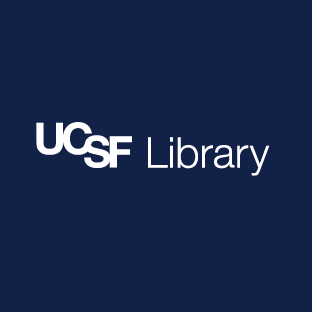People
Faculty
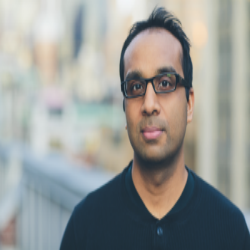
Sharad Goel
Sharad Goel is an assistant professor at Stanford in the Department of Management Science & Engineering, in the School of Engineering. He also has courtesy appointments in Computer Science, Sociology, and the Law School. His primary area of research is computational social science, an emerging discipline at the intersection of computer science, statistics, and the social sciences. Sharad is particularly interested in applying modern computational and statistical techniques to understand and improve public policy. Sharad is the founder and executive director of the Stanford Computational Policy Lab, a team of researchers, data scientists, and journalists that addresses policy problems through technical innovation.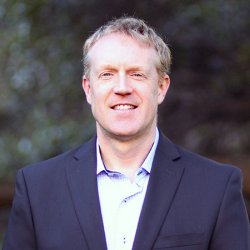
David Harding
David Harding (Ph.D. Harvard, 2005) is a Professor of Sociology and Faculty Director, Social Science D-Lab at at University of California, Berkeley. David J. Harding has taught quantitative methods for over ten years at both the University of Michigan and UC Berkeley. In his own research, he has used various methods for causal inference, including propensity score matching, sensitivity analysis, inverse probability of treatment weighting, panel data models, regression with residuals, field experiments, and natural experiments. His recent work has appeared in the American Sociological Review, American Journal of Sociology, Social Forces, Proceedings of the National Academy of Science, and Nature Human Behaviour, among other journals.Speakers
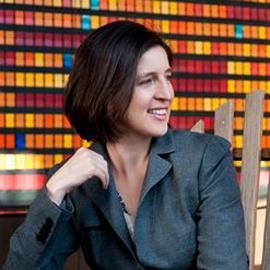
Susan Athey
Susan Athey is the Economics of Technology Professor at Stanford Graduate School of Business. She received her bachelor’s degree from Duke University and her PhD from Stanford, and she holds an honorary doctorate from Duke University. She previously taught at the economics departments at MIT, Stanford and Harvard. Her current research focuses on the economics of digitization, marketplace design, and the intersection of econometrics and machine learning. She has worked on several application areas, including timber auctions, internet search, online advertising, the news media, and the application of digital technology to social impact applications. As one of the first “tech economists,” she served as consulting chief economist for Microsoft Corporation for six years, and now serves on the boards of Expedia, Lending Club, Rover, Turo, and Ripple, as well as non-profit Innovations for Poverty Action. She also serves as a long-term advisor to the British Columbia Ministry of Forests, helping architect and implement their auction-based pricing system. She is the founding director of the Golub Capital Social Impact Lab at Stanford GSB, and associate director of the Stanford Institute for Human-Centered Artificial Intelligence.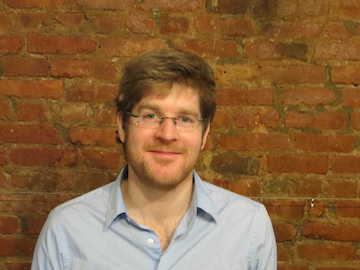
Dennis Feehan
Dennis Feehan is a demographer and quantitative social scientist. His research interests lie at the intersection of networks, demography, and quantitative methodology. He's an Assistant Professor of Demography at the University of California, Berkeley. In the summer of 2015, he finished his Ph.D. at Princeton’s Office of Population Research, and he spent the fall of 2015 as a Research Scientist at Facebook.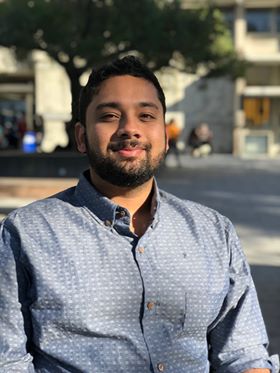
Aniket Kesari
Aniket Kesari is a postdoctoral scholar at UC Berkeley's D-Lab. He completed his PhD at Berkeley Law, where he specialized in Law & Economics, and he is also a JD candidate at Yale University. During graduate school, he was a Google Policy Fellow at Engine, a Data Science for Social Good Fellow at the University of Chicago, an a Technology Policy Intern at GitHub. His primary research interests lie in law & technology, data science and public policy. His current research agenda focuses on using data science to answer questions in privacy and cybercrime law.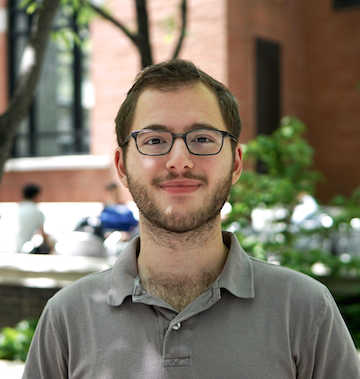
Eli Ben-Michael
Eli Ben-Michael is a PhD candidate in statistics at U.C. Berkeley. Previously, he studied at Columbia University where he earned a bachelor's degree in computer science and statistics. Drawing from computational statistics, optimization, and machine learning, he works on developing methods for causal inference and applying them to problems in the social sciences.
Johannes C. Eichstaedt
Johannes C. Eichstaedt is a computational social scientist. He is jointly appointed as the Ram and Vijay Shriram HAI Faculty Fellow, and an Assistant Professor (Research) in the Psychology Department. Johannes obtained his Ph.D. in Psychology and has been a Senior Research Associate at the Positive Psychology Center at the University of Pennsylvania. In 2011 he co-founded and led the World Well-Being Project, bringing together computer scientists and psychologists, which has since attracted $3.9m in funding. Before joining the social sciences, Johannes did research in particle physics with an M.S. from the University of Chicago. In 2014, he was elected an Emerging Leader in Science & Society by the American Association for Advancement of Science (AAAS). In his non-academic time he practices Tai Chi and goes on long-distance hikes.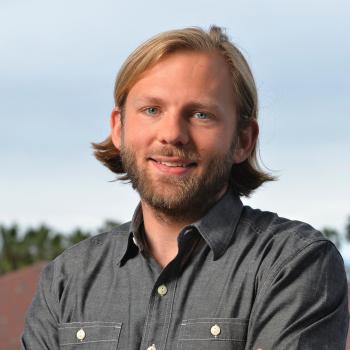
Johan Ugander
Ugander's research develops algorithmic and statistical frameworks for analyzing social networks, social systems, and other large-scale data-rich contexts. He is particularly interested in the challenges of causal inference and experimentation in these complex domains. His work commonly falls at the intersections of graph theory, statistics, optimization, and algorithm design.
Luke Terra
Luke directs the Community Engaged Learning and Research (CELR) division at the Haas Center for Public Service. The CELR team supports faculty and students in connecting teaching and research to broader public concerns through service-learning courses, community-engaged internships, and community-based research. Luke received his doctorate in history of education and international comparative education at the Stanford Graduate School of Education. His research focuses on teaching and learning in secondary history and civics classrooms. Luke’s dissertation explored the development of a common history curriculum in Northern Ireland, and the challenges of teaching history in a post-conflict context. Prior to his doctoral work, Luke managed international partnerships for the Center for Civic Education, supporting civic educators in Eastern Europe, the Balkans, Malawi, India and Indonesia. He previously served as assistant director of the Center for Service and Learning at Colorado College, where he worked with student service organizations, community organizations, and faculty interested in community engagement.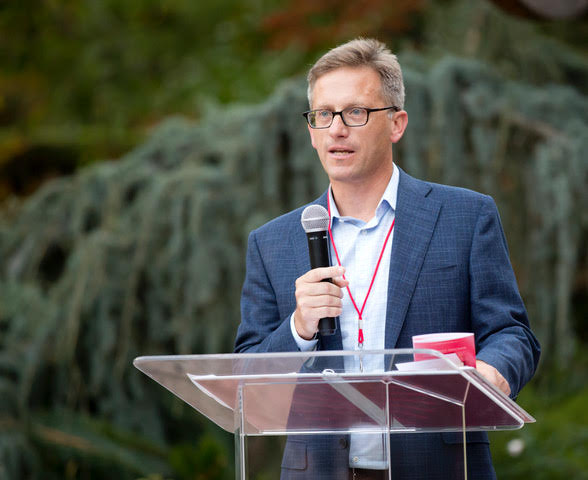
Rob Reich
Rob Reich is Professor of Political Science, director of the Center for Ethics in Society, co-director of the Center on Philanthropy and Civil Society, and associate director of the Institute for Human-Centered AI. He is the author of Just Giving: Why Philanthropy is Failing Democracy and How It Can Do Better. His teaching and writing these days focuses on ethics, policy, and technology.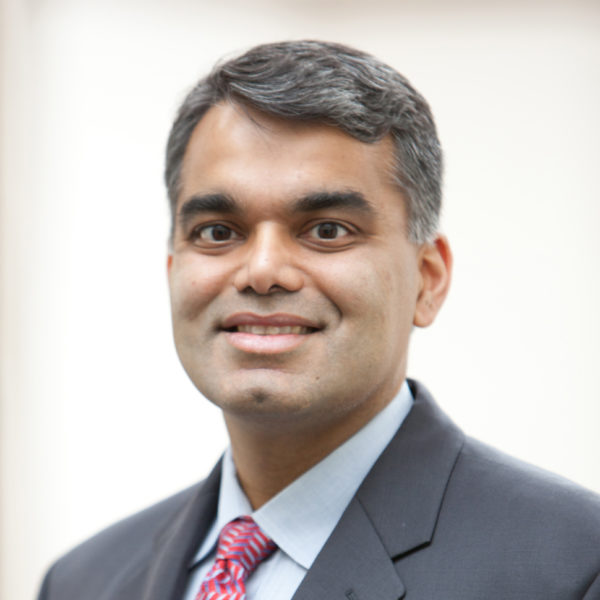
Sameer B. Srivastava
Sameer B. Srivastava is the Harold Furst Chair in Management Philosophy and Values at Berkeley Haas. He is also affiliated with UC Berkeley Sociology. His research unpacks the complex interrelationships among the culture of social groups, the cognition of individuals within these groups, and the connections that people forge within and across groups. Much of his work is set in organizational contexts, where he uses computational methods to examine how culture, cognition, and networks independently and jointly relate to career outcomes. His work has been published in scholarly journals such as American Journal of Sociology, American Sociological Review, Administrative Science Quarterly, Management Science, and Organization Science. It has been covered in media outlets, including The New York Times, The Economist, Fortune, The Wall Street Journal, Financial Times, and Forbes. He teaches a popular MBA elective course, Power and Politics in Organizations, and co-directs the Berkeley-Stanford Computational Culture Lab.
Sharad Goel
Sharad Goel is an assistant professor at Stanford in the Department of Management Science & Engineering, in the School of Engineering. He also has courtesy appointments in Computer Science, Sociology, and the Law School. His primary area of research is computational social science, an emerging discipline at the intersection of computer science, statistics, and the social sciences. Sharad is particularly interested in applying modern computational and statistical techniques to understand and improve public policy. Sharad is the founder and executive director of the Stanford Computational Policy Lab, a team of researchers, data scientists, and journalists that addresses policy problems through technical innovation.Organizers
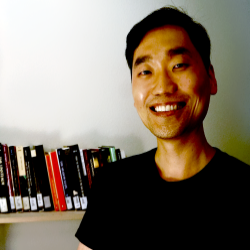
Jae Yeon Kim
Jae Yeon Kim is a PhD candidate in Political Science, a D-Lab data science fellow, and a data science education program fellow at UC Berkeley. He uses data science to advance social science research on diversity inclusion. His award-winning dissertation applies computational, statistical, and qualitative methods to understand what unites racial minority groups in the United States. His most recent research investigates intersectional bias in hate speech and abusive language datasets.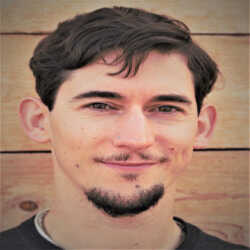
Jaren Haber
Jaren Haber is a PhD candidate in sociology at the University of California, Berkeley. His research applies computational methods to study how organizational contexts shape the impacts of structural inequalities. Jaren has studied whether charter school identities reinforce stratification by race and class, and at SICSS 2019 he joined Nick and Jae (fellow BAY-SICSS organizers) to conduct experiments evidencing how school websites' racial cues influence perceptions of school quality. He also studies text analysis workflows for social science. Jaren is currently on the job market and appreciates referrals.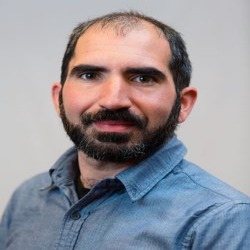
Nick Camp
Nick Camp is a postdoctoral researcher at Stanford University, where he received his PhD in social psychology in 2018. His research examines racial disparities in the everyday encounters between police officers and citizens, drawing on a range of methods, from computational studies of officer body-worn camera footage, experiments in community and lab settings, to analyses of traffic stop data. Starting Summer 2020, Nick will be an assistant professor of Organizational Studies at the University of Michigan.Teaching Assistants
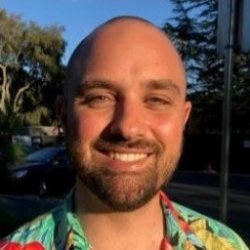
AJ Alvero
AJ is a PhD candidate in Education at Stanford University. His research lies at the intersection of the sociology of education, sociolinguistics, and data science. His ongoing dissertation work examines a large corpus of college admissions essays written by Latinx identifying students to understand the relationships between an applicant's context and the content of their essay. Outside of research, AJ has experience with activism and advocacy in his hometown of Salinas, CA. Prior to starting the PhD program, AJ was a high school English teacher in Miami, FL.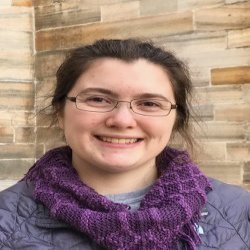
Emily Grabowski
Emily Grabowski is a PhD student in linguistics at UC Berkeley. Her research combines computational and experimental approaches to investigate the relationship between speech perception and production. She also explores applications of machine learning to speech, including the use of supervised and unsupervised methods to discover structure and applications in speech.
Mahnaz Roshanaei
Mahnaz is a Postdoc research fellow at Stanford University. She is a computer scientist with data science skills who is interested to collaborate across disciplines and develop and apply statistical and machine learning methods on social science issues. Her current research focuses on applying computational methods to understand behavioral, network and smartphone data to explore how the individuals’ characteristics and behavior shape their position in, or effect on, social networks. Mahnaz is broadly interested in Machine learning and Causal inference to reason better with behavioral and network data to solve societal problems.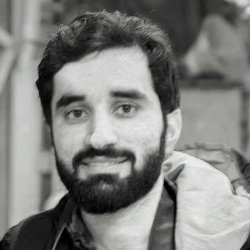
Saqib Mumtaz
Saqib is a PhD student at the Haas School of Business, UC Berkeley. He completed a bachelor's degree in Electrical Engineering from Indian Institute of Technology and a master's degree in Public Policy from the Goldman School of Public Policy. He previously worked on technology policy issues in the Indian context. His research interests include entrepreneurship, technology and innovation policy, and social networks.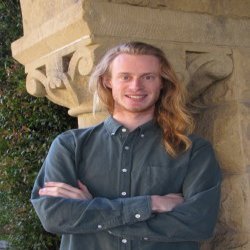
Tyler McDaniel
Tyler is a PhD student studying sociology at Stanford University. His current research focuses on school policies and individuals’ daily experiences with segregation. Using survey data, he compares racial and socioeconomic segregation experienced - in locations such as friends’ homes, places of worship, and shopping centers - by students who make different school choices. Broadly, he is interested in spatial inequalities, meritocracy, and predictive algorithms.Participants
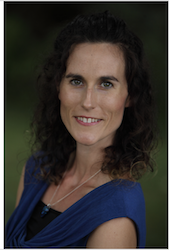
Abbie Nelson
Abbie Nelson is a Phd student in social work at Michigan State University. She is a Licensed Clinical Social Worker with over ten years of experience. Her clinical focus has been trauma, sexual abuse, and domestic violence. Her research interests include developing holistic, culturally competent interventions for domestic violence survivors as well as the structural role of patriarchy and domestic violence. She also studies the connection between mental health and nutrition and is an active yoga instructor and triathlete. She is eager to learn more about how to bring computational social science to the discipline of social work.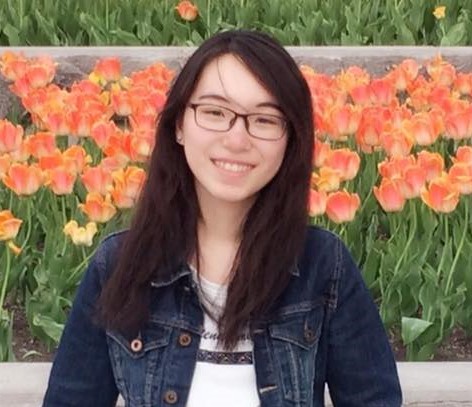
Allison Jiang
Allison Jiang is a PhD student in Economics at University of California, Berkeley. She is interested in Behavioral Economics with applications in real world settings. Her current research focuses helping individuals alleviate obesity and digital addiction.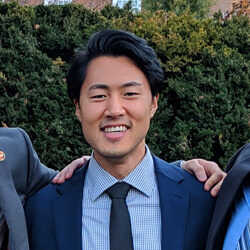
Brian Kim
Brian Heseung Kim is a Ph.D. student in quantitative Education Policy at the University of Virginia. His research focuses on supporting students of diverse backgrounds through major decision-making junctures in higher education like the college application process and the post-graduation job application process. He hopes to leverage natural language processing methods to tap into the wealth of text and audio data generated every day in education, as well as predictive analytics to improve the responsiveness and personalization of student support systems.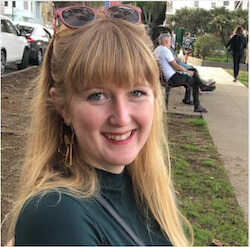
Brooke Staveland
Brooke Staveland is a Ph.D. student in Neuroscience at the University of California - Berkeley. She currently uses electrocorticography to study the neurobiology of anxiety, but in the past has used statistical and machine learning methods to look for meaningful treatment groups across a wide range of mental health diagnoses. Most broadly, Brooke hopes to apply computational methods in order to improve mental health treatment and maintenance.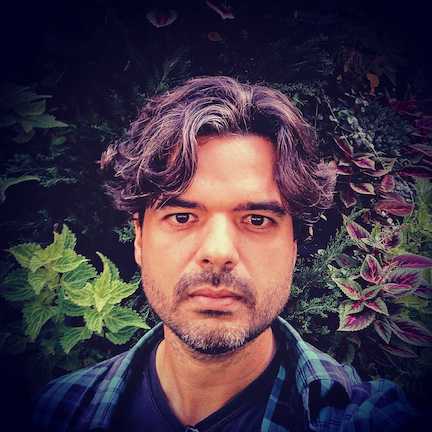
Carlos Denner
Carlos Denner is a visiting professor at UC Berkeley Engineering's Center for Entrepreneurship & Technology (SCET), an associate professor at the University of Brasilia, and a senior researcher at the Université de Montréal (St-Justine Hospital). He has done research on open source software for the last 15 years to understand the dynamics of collaboration using various statistical models and tools. Nowadays, Carlos works in research capable of incorporating elements of image and text processing, as well as live geo-tagged big data to deliver decision support systems for educational and clinical purposes that prime for their design.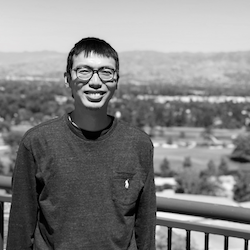
Cheng Ren
Cheng Ren a Ph.D. student in Social Welfare, with Designated Emphasis in Computational and Data Science and Engineering Program, and is also a data consultant for the D-Lab at UC Berkeley. He applies data science tools to improve the welfare system. His research interests are community engagement and assessment, nonprofit development, migrant well-being, community database, and computational social welfare. He is also a big fan of geographic information systems.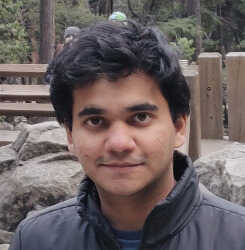
Chirag Modi
Chirag Modi is a graduating Physics PhD student at UC Berkeley. His primary research is focused on computational cosmology and developing statistical methods for scientific analysis using machine learning. He is equally interested in expanding his work and contributing to social topics, particularly public policy, social equity and climate change. He is currently working on developing causal inference techniques to evaluate the impact of policy interventions.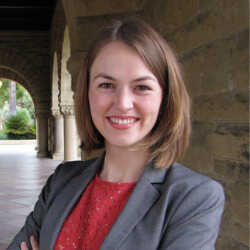
Claire Daviss
Claire Daviss is a PhD student in sociology at Stanford University. Her research interests include gender inequality, work and employment, and quantitative methods. Her current research focuses on long-term trends in employers' preferences for workers of different genders, drawing on longitudinal data from a large online labor marketplace. She's excited to learn more about how computational methods can be utilized for academic and community-engaged research.
Diana Reddy
Diana Reddy is an attorney and a Doctoral Student in the Jurisprudence and Social Policy Program at UC Berkeley. Her research focuses on work law; law and political economy; law and social movements; and social stratification and inequality, with a particular emphasis on the identity politics of class. Diana graduated Order of the Coif from New York University School of Law, where she was a Root-Tilden-Kern Scholar. She has an MA in Sociology and a BA in Cultural and Social Anthropology, magna cum laude, from Stanford University. Before her return to academia, Diana practiced labor law. Diana served as in-house counsel for the California Teachers Association, a labor union representing over 325,000 educators in the state of California.
Ernesto Gutiérrez Topete
Ernesto Gutiérrez Topete is a PhD student in Hispanic Linguistics at UC Berkeley. His research is focused on Spanish-English bilingualism, code-switching, and Spanish in the US. His work falls within the subdisciplines of sociophonetics and psycholinguistics. Through a variationist approach, the research he conducts is primarily experimental and quantitative.
Isaac Dalke
Isaac is a graduate student in the sociology department at UC-Berkeley. His current work pairs traditional interpretive techniques and computational text analysis to investigate decision-making practices around who to release from prison in California. More broadly, he is interested in expertise and the art of governing, with an eye to the consequences of state bureaucratic practices for those whose lives hinge on them.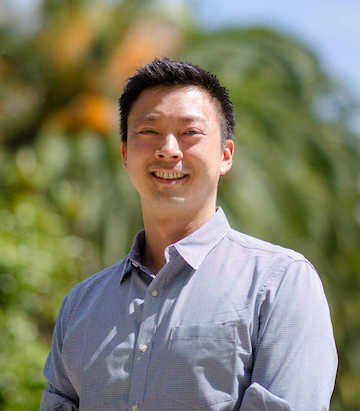
Jeff Sheng
Jeff Sheng is a PhD Candidate in Sociology and MS Graduate ('20) in Computer Science at Stanford University. His dissertation project examines the influence of technology on social movements, particularly the way the Internet and social computing have affected activism for LGBT rights over the past two decades. He also recently completed a research internship with the social media company Twitch on a collaborative paper examining the ways weak ties become strong ties on that platform. At a broader level, his research uses both qualitative, quantitative, and CSS methodologies to better understand how social media technologies shape culture, networks, and political change.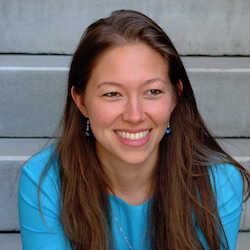
Krista Schnell
Krista Schnell is a PhD student in sociology at University of California, Berkeley. Her areas of interest include inequality, gender, and sport. Her master’s research was on how and why women transition into technical careers later in life through coding bootcamps--and she strongly believes there should be greater diversity in tech! She is currently looking forward to her dissertation.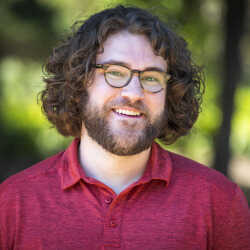
Landon Schnabel
Landon Schnabel is a postdoctoral fellow in the Polarization and Social Change Lab at Stanford and the incoming Rosenthal Assistant Professor of Sociology at Cornell. He studies inequality and why it persists. Current projects consider factors like religion, philanthropy, and seemingly positive stereotypes that ostensibly compensate for inequality—by providing social, psychological, and/or material benefits to subordinated groups—but can paradoxically end up legitimating and reinforcing it.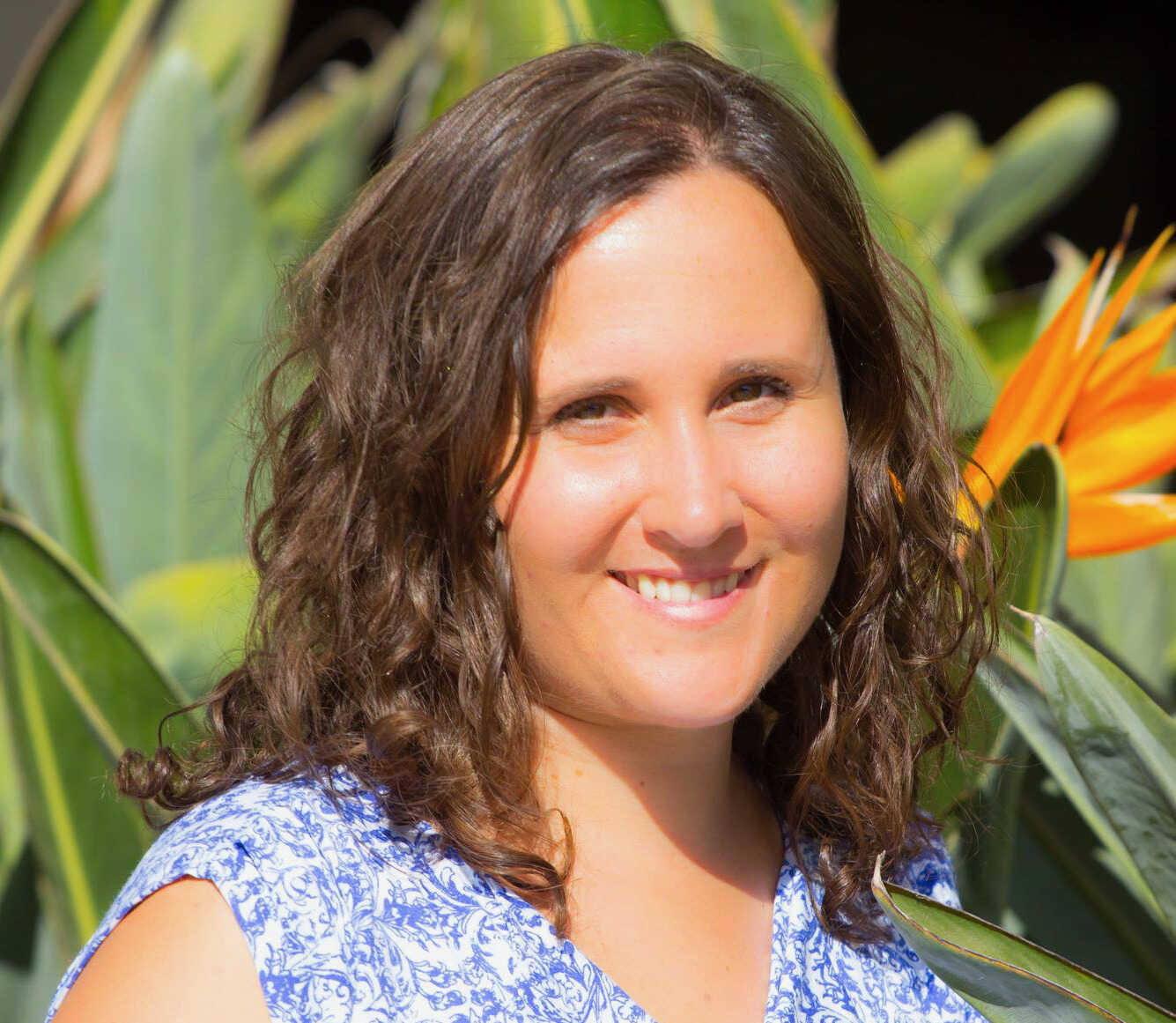
Meredith Meacham
Meredith Meacham is an Assistant Professor in the Department of Psychiatry and Behavioral Sciences at the University of California San Francisco. She is an epidemiologist and social scientist with a current focus on digital media as a tool for expanding access to healthcare and examining contemporary health behaviors, especially substance use and mental health. She is currently working on projects examining engagement with and trust in peer-generated online health information and novel knowledge production systems related to cannabis legalization.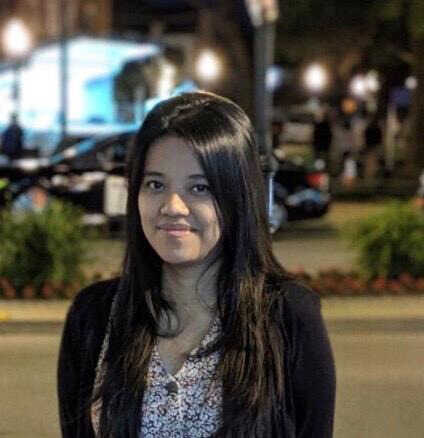
Nabamallika Dehingia
Nabamallika Dehingia is a PhD student in Global Health at UC San Diego. Her current research focusses on using machine learning models for understanding women’s health in low resource settings. She is interested in using text data from social media platforms to measure public opinion on gender.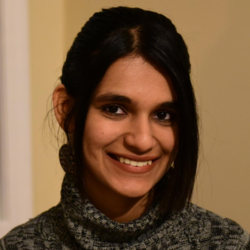
Purnima Padmanabhan
Purnima Padmanabhan is a PhD student in Neuroscience at The Johns Hopkins School of Medicine. Her current work investigates how perception and valuation of effort and reward affect the engagement and efficacy of physical rehabilitation in neurological disorders. Broadly, she is interested in emotional and social decision making, and how we can translate our knowledge in neural correlates of reward sensitivities to bring about long-lasting improvement in social and cognitive behavior. She is particularly interested in developing a large-scale data-driven approach to devise positive behavior change strategies in persons facing neuropsychiatric challenges.
Sherry Jiang
Sherry Jiang is a Ph.D student in psychology at University of California, San Diego. Her research areas focus on the intersection of emotion, morality, and decision-making combining experimental methods and computational methods (e.g., data mining and machine learning). She is especially interested in examining how people use social and affective information to inform decision-making, as well as how to decode emotions from big social media data.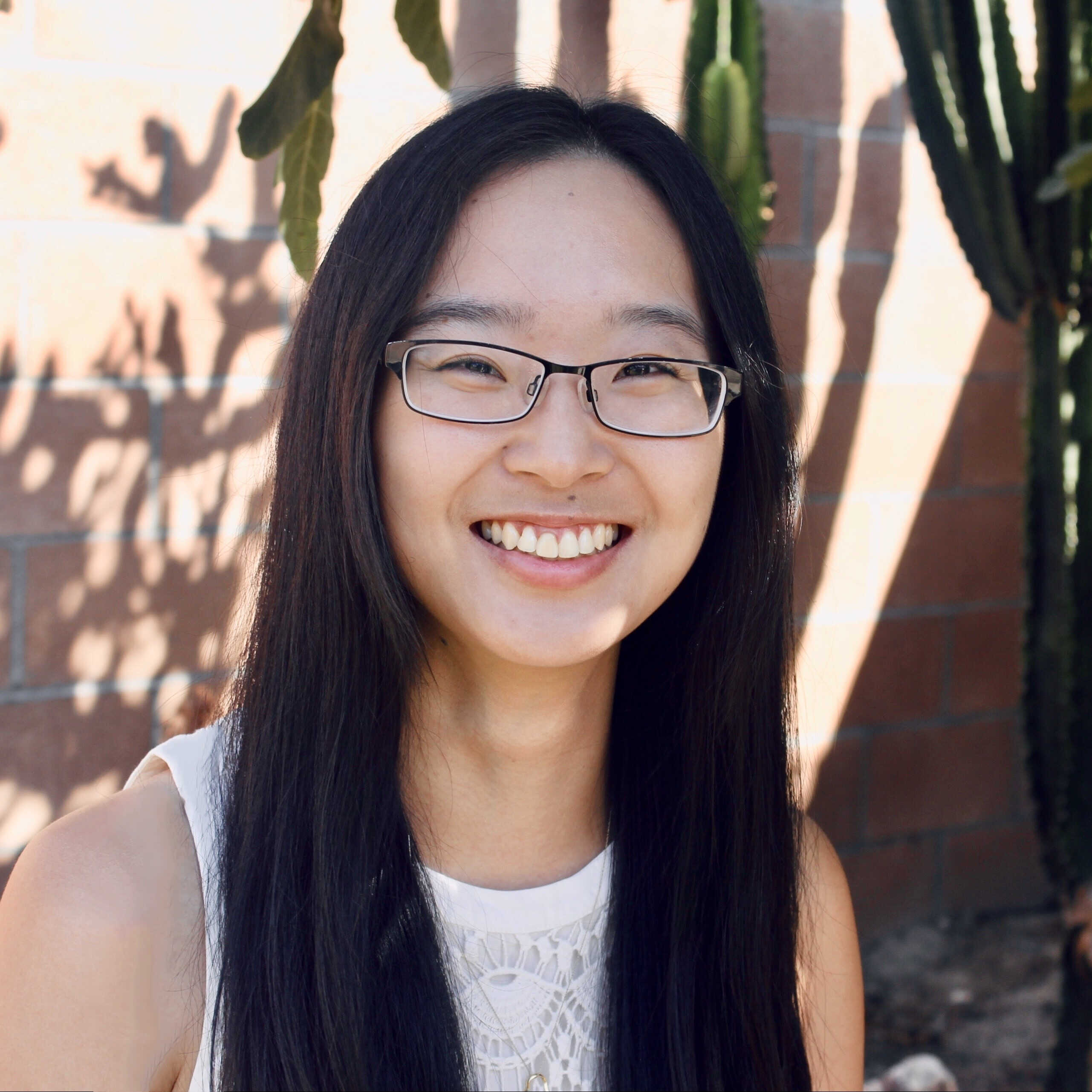
Terresa Eun
Terresa Eun is a PhD student in sociology at Stanford University. Her current research explores the rise in pain in the United States. More broadly, she is interested in the intersection of health and inequality, and she looks forward to applying computational social science tools to understand such topics as the intergenerational transfer of wealth through health (and vice versa) and the relationship between health, status, and organizations.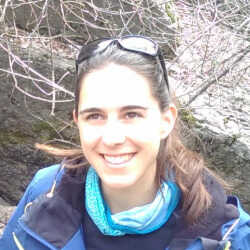
Vanessa Böhm
Vanessa Böhm is a postdoc at UC Berkeley and Lawrence Berkeley National Lab. Her current research is centered around developing machine learning and statistical methods that specifically meet the needs of scientific applications. While she is a cosmologist by training, she is interested in expanding her work to more useful causes. Topics that she is excited about include promoting social equity and creating equal opportunities, sustainability and transforming transportation systems.Community Partners

Code for America
Code for America helps government work for those who need it most. Our current projects include making safety net program applications quick and easy, connecting people who need help with getting their tax refunds to Volunteer Income Tax Assistance (VITA) volunteers, and automating the clearance of criminal records so that people have greater access to jobs and housing. Our goal for the Summer Institute is to contrast the post-COVID influx of GetCalFresh (food stamp) applications with earlier applications. In what ways are new applicants and their circumstances distinctive from those in the past? What new challenges may today’s applicants be facing that ought to be receiving greater attention from policymakers or the media? Specifically, we would like to 1) identify these compositional changes and surface new challenges individuals may be facing, 2) highlight these through interactive visualizations and other content for a major revision to the Supplemental Nutrition Assistance Program (SNAP) stories microsite, and 3) explore research collaborations academic participants may want to pursue with us.
DonorsChoose
DonorsChoose makes it easy for anyone to help a classroom in need, moving us closer to a nation where students in every community have the tools and experiences they need for a great education. Our project focuses on understanding the impact of school closure policies on the ability of teachers to get crucial materials to their students. We want to map trends in our daily aggregate state-level project posting data against the beginning of state school closure policies, and against state-level COVID-19 case numbers. We'd love to analyze what happened in each state when DonorsChoose implemented initiatives to allow teachers to ship materials to a location other than their school. We're hoping to get a broad understanding of which states' teachers were hit hardest by the pandemic on their ability to get materials through us, and which states' teachers are benefitting the most from our distance learning initiatives.
Hopelab
Hopelab is a social innovation lab that creates behavior-change tech (apps, chatbots, digital games, etc) to help adolescents and young adults live happier, healthier lives. Our project seeks to better understand the impact of COVID-19 on young people’s health and wellbeing. COVID-19 has disrupted nearly every aspect of our lives, and that’s profoundly true for adolescents and young adults (AYAs) too. There’s a lot we still don’t know, but we do know that challenges already facing AYAs in the U.S. are likely to get worse. For example: dramatic increases in social isolation and associated mental health problems in what was already the loneliest generation ever; unprecedented disruption of higher education and its value proposition, likely exacerbating financial and educational disparities; widening access barriers to maternal/child health for low income young women; increased wellbeing and safety risk for LGBTQ+ youth who may be sheltering in place in unsupportive/unsafe homes; consequences of the explosion of teen vaping, to name a few. For our project, we’d love to tap into this group’s creativity and data science toolkit to explore new ways to use high quality, publicly available datasets (e.g., teen stress and mental health surveys, federal student loan data, sexual and gender minority health data) to generate new insights into drivers of AYA vulnerability and resilience during COVID, to identify needs and digital intervention targets, and/or to create novel digital measures of impact and change over time.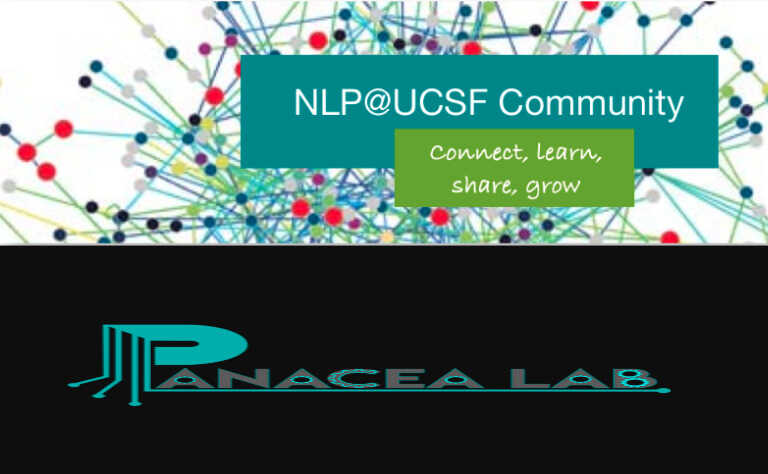
UCSF NLP Community and PanaceaLab
The Natural Language Processing (NLP@UCSF) team is part of an ongoing initiative to develop a UCSF-based community of practice focused on natural language processing (NLP) and its applications to health disparities, clinical & biomedical research and healthcare. Our mission is to connect practitioners, enable collaborations, learning, and knowledge sharing, and to provide a support network for diverse teams. To facilitate multidisciplinary research aimed at reducing health disparities in COVID-19, promoting inclusion in COVID-19 discourse, and informing public health policy, NLP@UCSF is partnering with the Panacea Lab at Georgia State University (GSU) and BAY-SICSS to analyze the Covid-19 Twitter chatter dataset. This data consists of over 361 million COVID-19 related tweets collected from January 27th to today. The COVID-19 Twitter chatter data captures all languages, but the higher prevalence languages are: English, Spanish, and French. Potential projects include: 1) identifying misinformation spread (retweets are available for this); 2) characterizing social discourse of policies, such as shelter-in-place, use of masks, among others, and 3) COVID-19 health disparities (e.g. disproportionate impact on African American, LatinX, and Asian communities, essential workers, prison populations, and people experiencing homelessness), and 4) potential human rights issues with contact tracing, law enforcement, public health, and privacy. This data include daily tallies of the most common COVID19 bigrams and trigrams. For example, a potential project could aim to analyze this data over time to examine discourse on public health interventions (i.e. social distancing and masks) using NLP techniques (e.g. LDA topic modeling, Word2Vec) over time. We encourage and are open to all approaches (e.g. machine learning and statistics) and to project ideas.